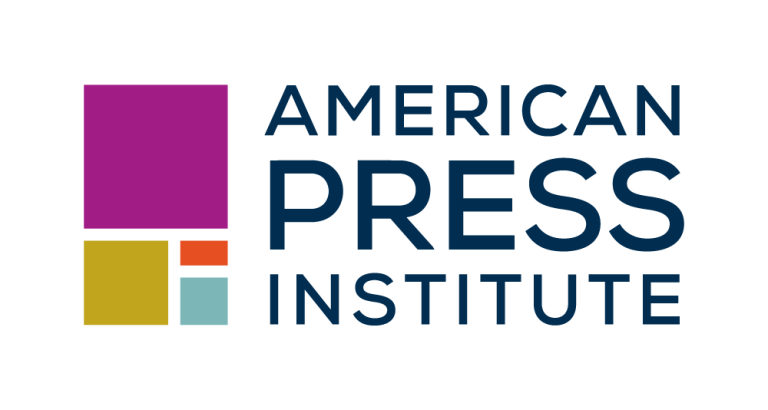Medical systems around the state have been cutting workers’ hours while at the same time ramping up to handle the coronavirus pandemic.
Those seemingly contradictory actions have raised questions from unions and others.
Wisconsin Department of Health Services Secretary Andrea Palm recently said the state did not require hospitals to stop elective procedures. And some systems are now hoping to ease back into elective procedures.
“They all assessed where they were, they thought about their surge plans, they worked through those details at the local level, and certainly made decisions based on that,” she told reporters in a DHS briefing.
But according to the Wisconsin Hospitals Association, hospital operating costs are rising from being on the front lines of the pandemic. That means health entities need to lower expenses to keep the doors open.
- RELATED: Browse our Member Content archives
The direction of the U.S. Surgeon General to postpone elective procedures and appointments comes at an underappreciated cost, Mark Grapentine, vice president of communications for WHA, recently told WisBusiness.com.
“Our analysis shows that Wisconsin hospitals and health systems are losing at least $150 million in revenue every week,” he said. “Wisconsin hospitals carry about $275 million/week in labor expenses alone, and it’s not easy for hospitals that we count on to be there for us in our greatest times of need, to dial down the expenses of being on the front line 24/7/365.”
Some recent reports display the trend:
- In late March, Mercyhealth decided to temporarily furlough employees who don’t provide direct patient care or who provide services that can be delayed.
- Earlier in April, Gundersen Health System announced the financially driven decision to reduce staff levels through furloughs and reduced hours.
- Marshfield Clinic Health System announced in April it would cut wages and furlough employees who are not involved in preparing for a surge in coronavirus patients.
- UW-Health and UnityPoint Health Meriter in late April announced a temporary reduction in hours, furloughs and salary reductions due to “unprecedented challenges and volume declines” including pausing services, delaying capital projects and reducing spending “as a result of the global pandemic.”
“The COVID-19 crisis has challenged UnityPoint Health as a care provider and as an employer,” said UnityPoint Health President and CEO Kevin Vermeer in a statement. “While we remain focused on providing the best care possible for our patients, it’s critical we conserve our resources wherever possible. These changes in our workforce are needed to ensure we can continue meeting the healthcare needs of our communities into the future.”
- Also in late April, Aspirus announced furloughs and reduced hours for employees due to the pandemic’s toll on the health organization.
Hospitals have received $100 billion in relief from the federal government and are poised to get another $75 billion through a federal bill that got congressional approval in late April. Initial funds of $30 billion went to facilities and providers based on their share of Medicare fee-for-service reimbursements.
A state-by-state breakdown of the initial $30 billion released by the American College of Radiology, said $471.7 million went to 4,120 Wisconsin providers.
But a U.S. Department of Health and Human Services spokesperson said the breakdown shows the amount allocated to billing organizations for eligible recipients based on the billing organizations’ address, not necessarily the state where providers are operating.
According to DHS, the COVID-19 relief acts provide for direct payments from the federal government to individual providers without passing through the state.
The HHS said additional “targeted distributions” will focus on providers in areas particularly impacted by the COVID-19 outbreak, rural providers and providers who predominantly serve the Medicaid population.
SSM Health experienced 50 percent revenue loss since mid-March, according to Wisconsin Regional President Damond Boatwright on April 16. He attributes that loss to the cancellations of procedures and surgeries, suspended services at clinics and telehealth patient appointments.
“To offset these losses, particularly if they are prolonged, we must begin looking at our expenditures to see what non-patient care related costs we can cut, delay or reduce for the sustainability of our organization,” he said. “Many health systems are looking ahead to see what other steps may be necessary to ensure their financial stability through the COVID-19 pandemic and into the future.”
Boatwright said that while SSM Health is receiving financial assistance from the stimulus packages, it’s less than the losses Wisconsin health systems have faced.
“Our teams are in contact with the appropriate state and federal officials to discuss any additional assistance available now or in the future,” he said.
An SSM Health spokeswoman told WisBusiness.com in late April that while SSM has not cut pay for any staff, there are staff who have seen a reduction in hours due to lower patient volumes, “which is a normal practice for low census within hospitals and clinics across the country.”
Palm, of DHS, said the state is engaged in conversations about how to provide hospitals with personal protective equipment to start elective procedures again and start doing their deferred care.
The Medical College of Wisconsin, the largest physician practice in the state, has also suffered unprecedented costs while creating a 60 percent surge capacity increase of ICUs and ventilators.
MCW announced in late April it furloughed 700 employees and implemented pay cuts.
Dr. John Raymond, president of MCW, noted before the announcement that MCW doesn’t own a health system: “Our revenue has declined by 50 percent in a matter of weeks and what that translates into right now is about a $1 million-a-day loss.”
Raymond noted this was a surprise, especially at the beginning, when health systems thought that since it provided health care, coronavirus wouldn’t come at such a high price.
“We’re going to have trouble getting through the next couple of months,” he said. “We can’t pivot back to business as usual even if we control COVID-19 because of the severe shortage of personal protective equipment — we need that to run our operating rooms and we just don’t have that much here.”
The president of the Wisconsin Federation of Nurses and Health Care Professionals says medical facilities need to put aside their bottom line to protect labor.
“The corporations, the big medical suppliers, the people who look at nurses as a line item, rather than professionals who care for other people…need to put aside their care for their bottom line and start worrying about us and the community,” said Jeff Weber in a recent webinar put on by U.S. Rep. Gwen Moore, D-Milwaukee.
Weber argued that hospitals are more concerned with protecting liabilities than caregivers “who go to battle each and every day against this deadly disease.”
“They hire MBAs and attorneys to draw up these business plans that maximize income by cutting nurses and nursing assistants and supplies, and then protect their assets and minimize their liability,” he said.
For more, visit WisPolitics.com
The Capitol Report is written by editorial staff at WisPolitics.com, a nonpartisan, Madison-based news service that specializes in coverage of government and politics, and is distributed for publication by members of the Wisconsin Newspaper Association.
Copyright © WisPolitics.com



